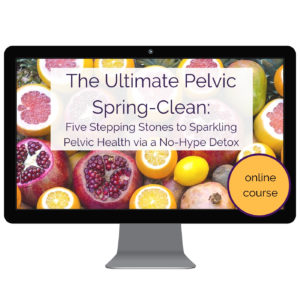Pelvic pain in endometriosis: you might have period pain, pain with sex, pain with bowel motions, or just plain pain with no clear trigger. People don’t understand how bad you can feel. You might go through stages of feeling okay, and being able to do some stuff. And then the pain really hits you and you just feel sick, exhausted and bleeeechhhhh. Maybe you even feel toxic.
Is it toxins? Is your body full of toxins – is that what’s making you feel so bad?!
Endometriosis is a pretty complex creature, so I can’t tell the whole story in one post. But I want to focus on this idea of endometriosis and toxins. If you have endometriosis, are you toxic? Or is it all just hogwash?
Well, guess what? Recent research on endometriosis and toxins has uncovered something called lipopolysaccharide, or LPS for short. If they say that in one breath, the next breath is usually something about “circulating endotoxins”. What? Does this mean that endometriosis and toxins really are linked?
LPS is technically a toxin. Yes, “toxins” is a real concept – it just refers to the toxic stuff your body produces as it goes about its business. Or, more graphically: LPS is the slime that bursts out of the cell membranes of certain types of bacteria when they explode. (They’re called “gram-negative” bacteria, and their Head of State is E. coli. E. coli is famously known for causing urinary tract infections and bloody diarrhoea (I’m not swearing) from contaminated beef mince, raw milk and unpasteurised cheese. And (rather unfairly) alfalfa sprouts. (For you Brisbane folk, this was also the bug responsible for the outbreak from the Brisbane Show (the Ekka) a few years back in the petting zoo.)
But back to the point. What does LPS have to do with endometriosis? Well, LPS is what’s known as an endotoxin – that is, a toxic substance produced inside the body. LPS teams up with estrogen to aggravate inflammation in the pelvis (peritoneum) of women with endometriosis. (Read all the boring scientific detail here). E. coli and other LPS-containing bacteria are a normal part of the gut microbiota. But if they increase in number or you develop leaky gut or eat a high fat diet then the endotoxins can circulate in your bloodstream (“endotoxaemia”). (Taking probiotics won’t cause this, in case you were worried. You can read a scientific review on that here.)
The toxin LPS has a way of well and truly messing up reproductive health. This review article talks about how it causes harm to follicle (egg) development. It messes up the key hormone for ovulation (LH) and, unsurprisingly, reduces ovulation. It also ages the ovary. (Keep in mind, this is generally LPS research in animals and not real human women with endometriosis. But it is an interesting link.)
And here’s another. The menstrual blood of women with endometriosis contains high amounts of E. coli (evidence here). But that’s a topic for another blog post.
Wish you could offset the effects of internal and external toxins that could be related to your endometriosis? The Ultimate Pelvic Spring-Clean: Five Stepping Stones to Sparkling Pelvic Health via a No-Hype Detox, might be just what you need!


